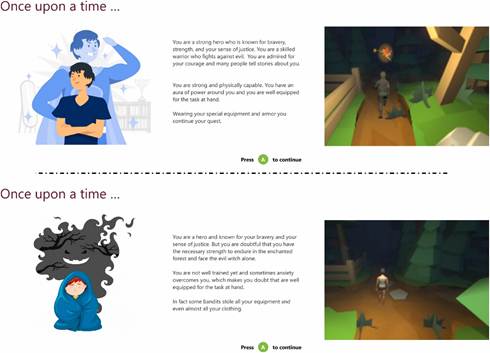Can making a task feel like a game improve how we perform it - or can it sometimes hurt our focus?
by Linus, former student at PCRS in 2024
In our recent study at the department of Conflict, Risk and Safety, we explored how light-touch gamification - subtle game elements like immersive stories and powerful avatars - affects performance in a cognitive task called the Stop-Signal Task (SST). This task measures response inhibition, or how well someone can stop an already planned and initiated action. We 'gamified' it, turning it into the Stop-Signal Game (SSG), and asked: Can a story or avatar change how people perform? To test our hypothesis, participants were invited to two sessions of playing the game: Once playing a strong and well equiped hero and once playing a weak and unequiped hero; both either chasing after or fleeing from an evil witch hiding in the enchanted forest.

Key Findings:
Story and avatar strength didn’t impact performance: Contrary to our expectations, whether participants played a “strong” armored hero or a “weaker” character, or whether they were told to chase or escape a witch, their actual task performance remained stable.
More immersion = worse performance: Participants who felt more immersed in the game actually performed worse at stopping their responses. It seems the game elements drew attention away from the core task.
Motivation faded quickly: Across sessions, players reported lower immersion and intrinsic motivation, likely because the narrative didn’t offer enough meaningful goals or choices to stay engaging.
Implications
Our study has shown, that gamification does not always produce performance and motivation enhancing effects. Poorly matched game-like elements can actually lead to contrary effects and distract from a task and reduce motivation. Concluding, gamification does not always lead to improved performance and motivation. Therefore, researchers need to be careful in their design choices and implementation of game-like elements in a cognitive task. Otherwise, performance and motivation, as well as accuracy of results are at risk.
Interested in more? Read the whole study here.

